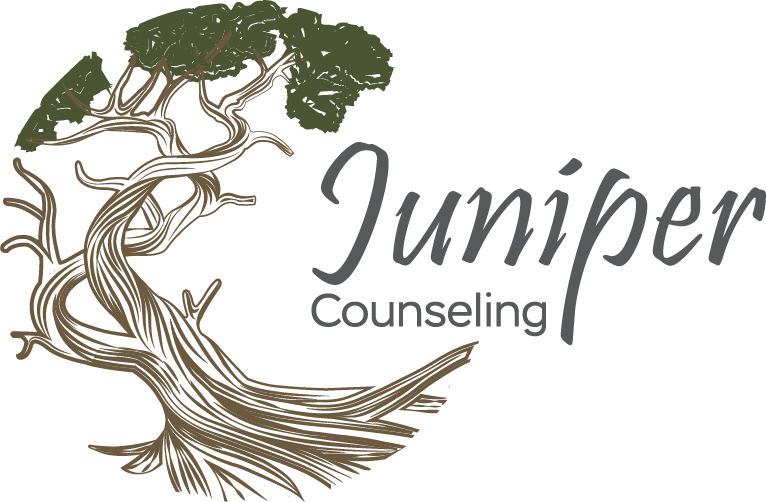Do You Feel Unsafe In Your Relationship?
Are you in a relationship that makes you feel trapped, confused, and powerless? Maybe you have a family member or partner that is abusive or narcissistic. Perhaps you’re afraid of them but you’re too attached to let them go. You might feel like you’re walking on pins and needles, always living in fear of what they’ll do next.
Because your thoughts and behavior center around trying not to anger your partner, you may feel like you’ve lost contact with who you are. If your only thought is how to please the other person and keep them satisfied, you probably don’t pay much attention to your own needs. Sometimes, it’s like you don’t even have needs—you’re so used to people-pleasing that you don’t even think about what you want or need in a relationship.
“Your entire life can really change in a year…you just got to love yourself enough to know you deserve more, be brave enough to demand more, and be disciplined enough to actually work for more.”
– Charlotte Flair

You Might Feel Unable To Establish Boundaries Or Leave Your Relationship
One of the major signs of a toxic or abusive relationship is a lack of boundary-setting. The other person may have eroded your sense of independence so much that you feel like you can’t set boundaries. It’s like you couldn’t leave the relationship even if you wanted to. As a result, you might keep on people-pleasing in the hopes of ensuring your safety.
Deep down, you probably wish you felt safe enough to leave the relationship or empowered enough to stand up to the other person. But more than that, you long for a relationship that makes you feel seen, heard, cared for, and loved. Counseling provides a safe and trusting environment in which to share your experiences, reestablish your sense of self, and gain the confidence to stand against abusive relationships.
Many People Don’t Even Realize They’re Living In Abusive Relationships
Partner abuse is far more common than people think. Part of the problem is the lack of awareness around what abuse is. Many people think abuse is just physical violence, but it’s so much more than that. An abusive relationship is any relationship where someone doesn’t feel safe or feels forced to give up their right to autonomy. Abusive relationships can include verbal abuse, angry outbursts, deception, manipulation, gaslighting, and attempts at control.
Unfortunately, many people don’t even realize they’re in an abusive relationship. The abuser might go to great lengths to deceive the other person into thinking the abuse is their fault. The other person might become so used to trying to please the abuser that they don’t even think about whether they should act differently. To them, the important thing is figuring out how to please the abuser in order to feel safe, not figuring out whether the abuser’s actions are wrong.


Fear Of The Unknown Keeps Many People In Unhealthy Relationships
Many people are afraid of what will happen if they leave a narcissistic or abusive relationship. Will the abuser retaliate? Will a breakup or divorce shake up family dynamics? What if there are kids involved and they lose custody? Many endure unhappiness to stay economically secure. These are many of the factors that often hold people back from getting the help they need.
Therapy is a chance to explore your experiences in a safe and confidential environment with a trusting professional who understands abusive relationships. You don’t have to walk this road alone.
Relationship Counseling Can Help You Heal From Abuse And Experience Warmth And Acceptance
Counseling can help you heal from the symptoms of abuse, increase your sense of empowerment, and learn to set protective boundaries in your relationships.
You deserve a safe space to express your feelings and be vulnerable without worrying about how the other person will respond. This is what counseling provides. I am here to listen to you, affirm that your experiences are real, and remind you that you are not at fault for someone else’s actions.
What To Expect In Sessions
In therapy together, you and I will explore the complexities of your relationship issues. We’ll address maladaptive thoughts and behaviors and look into the attachment patterns that make you susceptible to unhealthy relationships. Oftentimes, negative beliefs about yourself can reinforce porous boundaries in relationships, causing you to think that your needs don’t matter. I want to help you correct these core beliefs so that you can improve your self-worth and regain a sense of personal power.
Relationship counseling can be very practical, too. Together, we can work on communicating your needs, disarming abusive partners, and drawing healthy and protective boundaries. If you want to leave an abusive relationship, you and I can come up with a plan for doing so safely. I want you to learn new ways to protect yourself and understand that there are options for improving or changing your situation.


Tailoring Your Relationship Counseling Plan
An important component of relationship counseling is working with emotions. Too frequently, lack of emotional health is at the root of unhealthy relationships. By increasing your self-awareness and listening and responding to your emotions, you can reclaim your sense of identity and set more effective boundaries.
I draw from an eclectic mix of interventions, but one of the most important is Interpersonal Therapy. This approach gives you strategies for improving social functioning, navigating conflict, and resolving interpersonal deficits (such as a tendency to isolate or get stuck in unfulfilling relationships). These skills can help you prevent unhealthy patterns from being repeated in future relationships. When past emotional wounds are contributing to your relational conflicts, I draw upon IFS and EMDR to promote insight and healing at the deepest core levels.
You may feel trapped and powerless in your relationship right now, but there is hope. With a relationship therapist, you can share your story in safety and confidence. You will soon discover that you are not alone and you are not crazy for the feelings you’re having. Counseling is a chance to experience warmth, acceptance, and a greater sense of empowerment.
You May Have Some Questions About Relationship Counseling…
If I leave my partner, everyone will see me as the bad guy.
This is a very common fear, especially if you’re experiencing narcissistic abuse. The important thing to remember is that it is a fear, not a foregone conclusion. I encourage you to prioritize your safety above other people’s opinions. After all, you cannot change how others think, but you can change your own situation.
I’m afraid I’ll lose my children in a custody battle.
Of course your children are of paramount concern in any major life decision. It is important however, to consider the negative exposure your children might have from observing your partner’s behavior. They might be internalizing deep fears and learning unhealthy patterns that could negatively affect their own relationships someday. Focusing too much on the negatives can prevent you from seeing the big picture—that separating from your partner is a chance to give your kids a safer, healthier childhood.
I don’t think I could leave my relationship. My safety and economic outlook would be at risk.
When you’re stuck in a toxic or abusive relationship, it’s hard to imagine that there could ever be a way out. This is because fear inhibits the thinking part of the brain to such an extent that it can prevent you from recognizing additional options. Therapy can help you break out of fear-based thinking patterns and realize that you can find safety and security outside of your relationship.
You Deserve To Feel Seen, Heard, Accepted, And Loved
Counseling can help you restore your sense of self, gain a stronger sense of personal empowerment, and understand that you deserve a supportive and loving relationship.
If you would like to explore counseling with me, you can fill out the scheduling form or call 484-743-1776 to set up a free, 15 to 30-minute phone consultation.
Recent Blog Posts
Unlocking Self-Awareness: The Power of Noticing in Meditation
In the journey of self-discovery and emotional well-being, the act of noticing serves as a golden key, unlocking the doors to profound self-awareness. By consciously rehearsing the word "notice," we can cultivate a heightened [read more]
Overcoming Imposter Syndrome: Strategies for Embracing Your Achievements
Have you ever found yourself dismissing your accomplishments as luck or fearing that you'll be exposed as a fraud? If so, you're not alone. Imposter syndrome affects countless individuals, causing persistent feelings of inadequacy [read more]
Recover from Narcissistic Abuse and Reclaim Your Self
Navigating life after narcissistic abuse can feel like traversing a treacherous terrain, but it doesn't have to be a journey you take alone. In this blog post, we'll explore the empowering process of recovering [read more]








